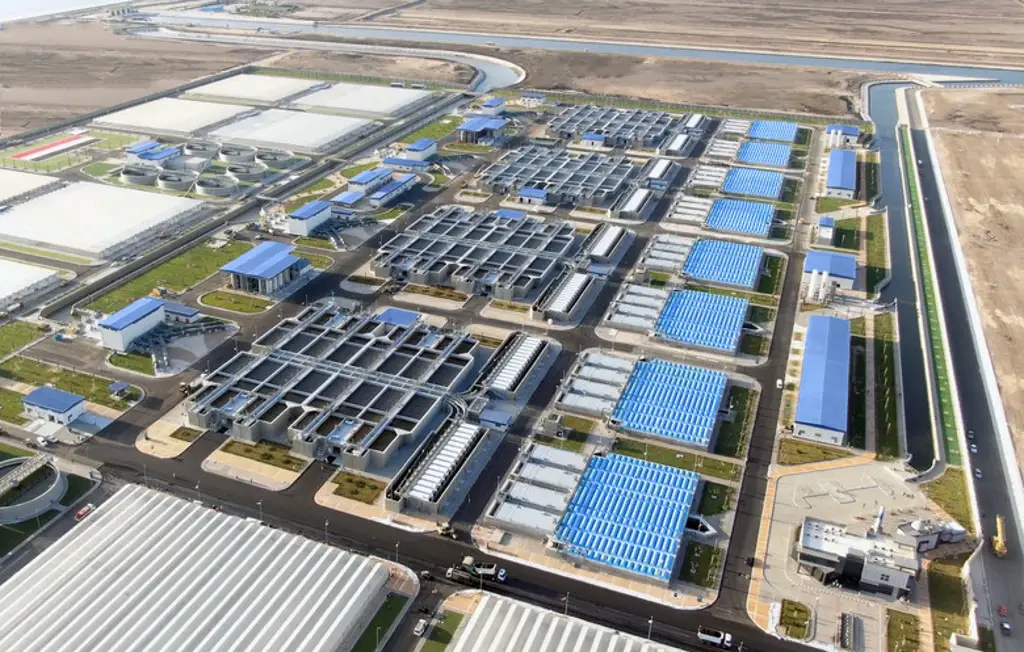The President of the Republic of Egypt, Abdel Fattah El Sisi, commissioned the Bahr El Baqar wastewater treatment plant, which became the largest of its kind not only in Egypt but also worldwide, with a treatment capacity of 5 million cubic meters per day.
The project was executed by a joint venture of Orascom Construction and Arab Contractors under a US $739 million agreement signed with the Armed Forces Engineering Authority in 2019. The facility comprised four water treatment lines, each with a daily processing capacity of 1,250,000 cubic meters.
It was equipped with advanced processes including pumping of raw water, coagulation, flocculation, decantation, filtration, and disinfection. Since its commissioning, the plant has played a critical role in supporting Egypt’s water security strategy by reclaiming and reusing treated water for agricultural purposes, particularly in the Sinai Peninsula.
Meanwhile, wastewater projects across the Middle East have continued to expand. In Saudi Arabia, the $500 million industrial wastewater treatment project in Jubail Industrial City 2 was recently awarded to a consortium of Marafiq, Lamar Holding, and Veolia Middle East. The project, scheduled for completion soon, is designed to serve the $11 billion Amiral chemicals zone and marks another major step toward sustainable water reuse in the region.
How the Bahr El Baqar wastewater treatment plant will work
The Bahr El Baqar wastewater treatment plant will collect domestic, industrial, and agricultural wastewater that flows along the Bahr al-Baqar Drain, which meanders 106 km from Dakahlia Governorate to Sharqia and from Ismailia Governorate to Port Said Governorate.
Also Read: Egypt awards contract for construction of Maghagha wastewater treatment plant
The effluent will then pass through the four treatment lines before being made available to farmers for irrigation. The government of the North African country estimates that the treated wastewater from the Bahr El-Baqar treatment plant will irrigate at least 168,000 hectares of land in the Sinai Peninsula.
A part of the Sinai development program
The Bahr El Baqar wastewater treatment plant project, which also involved the construction of pumping stations and a water carrier, is part of the Sinai development program that is a set of infrastructure projects and development initiatives aimed at strengthening the local economy and raising the standard of living for people living in the said region.
The project was funded through a public-private partnership where the private sector provided two-thirds of the overall funding and the government provide the remainder.

Leave a Reply